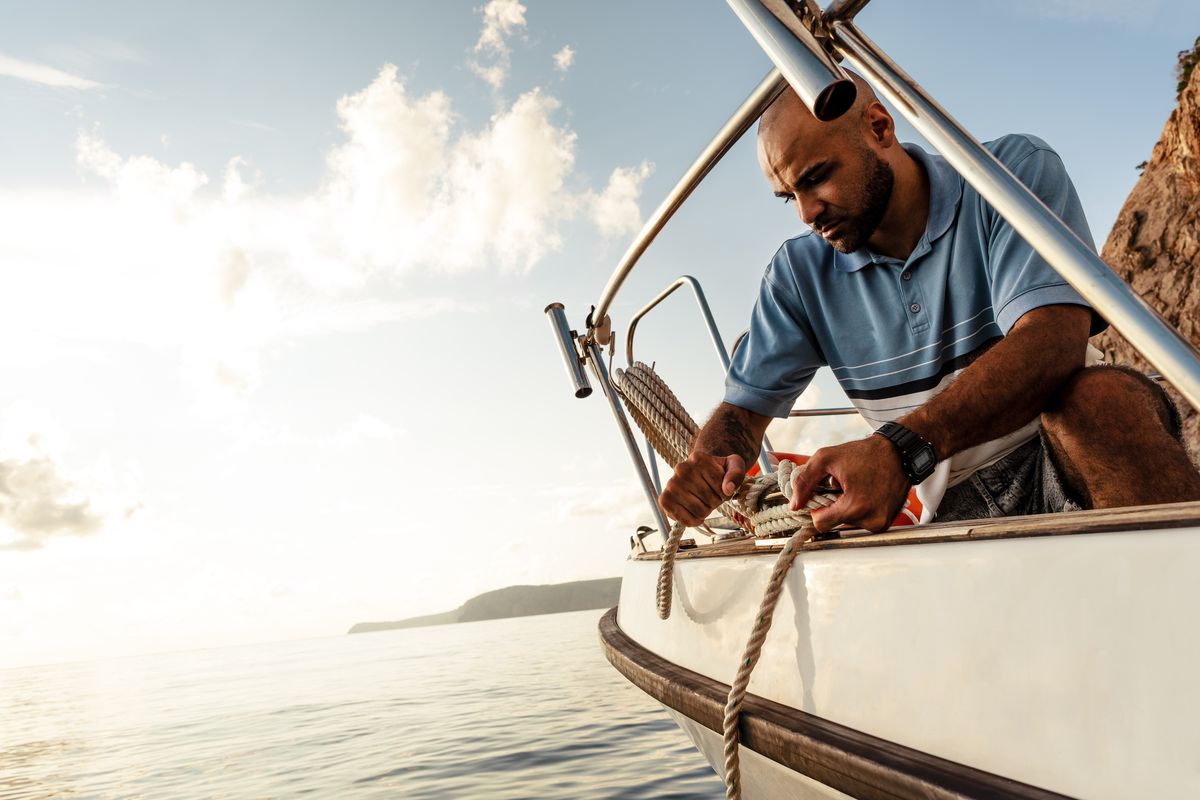-
Services
Featured Specialties
-
Locations
Location Type
-
Patients & Visitors
Published August 15, 2022

A little bit of common sense can go a long way to keeping families safe at the pool or beach this summer. Westerly Hospital Emergency Department Director Nader Bahadory, DO, says having extra safety equipment on hand, keeping an eye on vulnerable loved ones, and avoiding dangerous situations on the water can keep people out of the hospital.
“Enjoy the water, have fun, but pay attention to the environment around you and be responsible for the people that are not as agile in the water as you are,” Dr. Bahadory said.
He gave some tips on how to stay safe during those last weeks of summer.
Everything from dehydration to serious injuries can land people in the emergency department. Even experienced surfers can get a variety of injuries from smaller scratches to joint dislocations and neck injuries. Every year, people out fishing get hurt, resulting in fishhook injuries.
Heat related illnesses are on a continuum, starting with dehydration and progressing to heat exhaustion and eventually heat stroke. Heat stroke is a serious condition that could lead to seizures and kidney failure.
The earlier warning signs of dehydration can include nausea, headache, cramps and when someone stops sweating. The dry skin increases body temperature, which can lead to heat stroke.
More severe symptoms of heat exhaustion and heat stroke can include confusion and altered mental status. It is important to be on the lookout for warning signs of dehydration, heat exhaustion and heat stroke in older patients who may be more vulnerable to the summer temperatures. Some medications may also prevent them from sweating, causing them to become dehydrated faster.
Bacteria is everywhere, not just in the water. Swimming at the beach is unlikely to cause someone to get sick. However, a deep cut or wound could get infected by bacteria like vibrio, which can be found in the region. Thankfully, because the water is cold in Connecticut and Rhode Island, there is less bacteria in the water compared to warmer climates.
Most of the time, a jellyfish sting may be uncomfortable but not serious. The best thing to do is to remove any debris or remaining jellyfish from the exposed skin and wash the area in the salt water. Be careful removing extra pieces of jellyfish because they can still fire when removing them.
If you are concerned about an allergic reaction with symptoms such as shortness of breath, rash or trouble swallowing, go to the emergency department.
Pay attention to the environment around you. There are other people that are probably not as careful as you are, so you need to be prepared for the actions of other boaters. Taking a boating safety course is a good first step, keep enough life jackets on board for everyone and don’t drink while boating. Alcohol use is frequently linked to boating accidents and can make you more prone to heat related illnesses.
“Alcohol is a diuretic, so it makes you urinate more and if you’re drinking alcohol, you’re not drinking water and that’s a double whammy to become more dehydrated,” said Dr. Bahadory.
Pay attention to your surroundings, including the flow of the water and any undercurrents. This summer there have been some injuries related to a strong current that can catch even experienced swimmers off guard.
Adults should also keep a close eye on kids at the pool or beach. If there are too many kids and not enough adults, someone could get lost in the mix, so always have enough chaperones present anytime there’s water involved.
Once again, use common sense! If the current is too strong, stay out of the water. If the temperatures are too hot, make sure vulnerable loved ones are staying cool and hydrated.